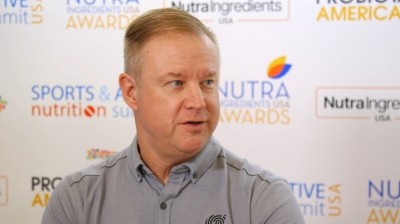Ayana Bio partners with Wooree Green Science for plant cell-derived saffron

Wooree Green Science, a subsidiary of Wooree Bio, uses biotechnology to address sustainability needs in the agriculture industry. The new partnership with Ayana Bio focuses on the development of important bioactive ingredients for health and wellness products for distribution in the South Korean market.
Ayana Bio’s plant cell technology is a means to create plant materials without growing plants in the ground. The plant cell cultivation technology starts by identifying the best plant cell lines—just like traditional plant breeding. These plant cells are propagated from real plants (similar to stem cells) and assessed throughout the cell cultivation process for important characteristics like bioactive potency, stability and purity.
The company then provides the nutrients the plant cells need to grow and multiply.
Ayana Bio's Plant Cell Advantage ingredient portfolio is currently composed of Dog Rose PCA, Hedge Nettle PCA, Sage PCA, Echinacea-p PCA and Lemon Balm PCA.
Ayana and Wooree will collaborate on increasing the accessibility and affordability of underdeveloped beneficial botanical ingredients like saffron, said Ayana in a press release.
Saffron
First up is saffron, the most expensive spice in the world, with scientific evidence supporting its potential to aid in weight management by suppressing appetite and increasing metabolism. It can take up to 170,000 flowers to produce just one kilo of saffron, and Ayana Bio noted that climate change-driven crop failures are exacerbating an already constrained supply chain from the plant's labor-intensive harvesting needs.
"Saffron, like many other botanicals, faces a complex and uncertain future as it grapples with shifting weather patterns, pollution and water shortages in the limited number of countries where traditional production happens," said Frank Jaksch, CEO of Ayana Bio.
By leveraging plant cell cultivation technology, the joint development agreement aims to sustainably and economically produce saffron bioactives.
"We want to reinvigorate the natural plant-based weight loss supplement market so more people can reap the health benefits,” added Jaksch. “Joining forces with Wooree Green Science will help Ayana Bio deliver on the promise of saffron's clinical evidence by making the ingredient more affordable with plant cell cultivation."
Um Tae Wook, CEO of Wooree Green Science, added: "We're excited to collaborate with Ayana Bio to utilize its plant cell cultivation technology for the production of new plant cell ingredients for a multitude of applications across food and beverages, cosmetics and pharmaceuticals.”
















